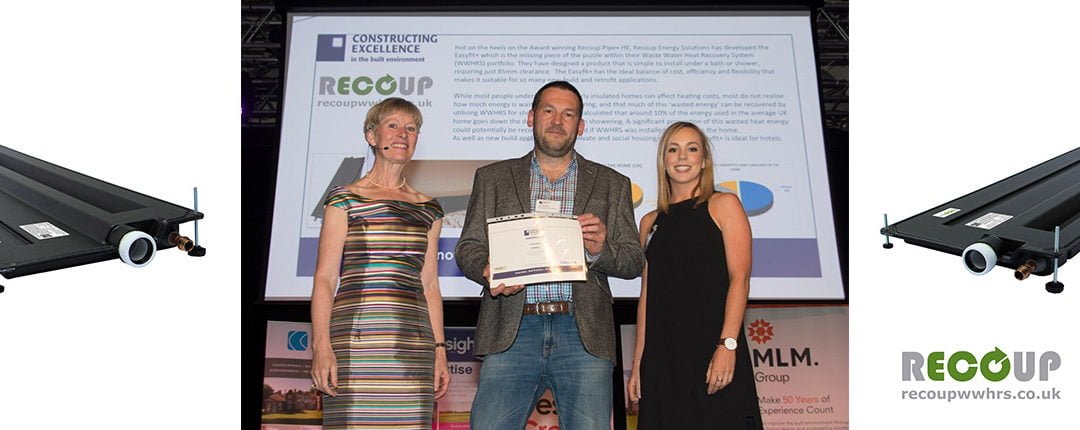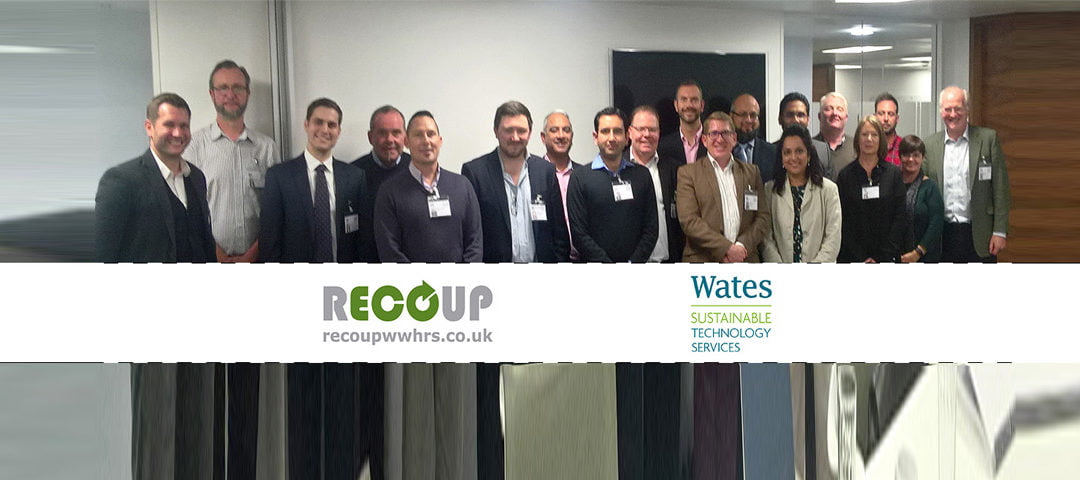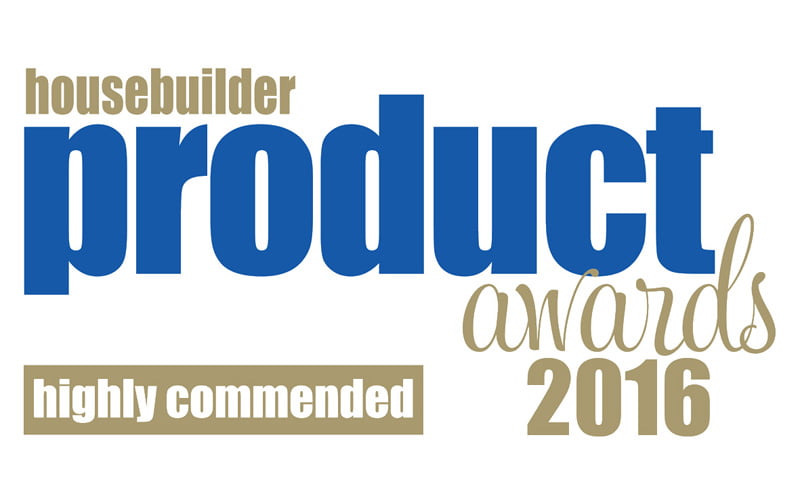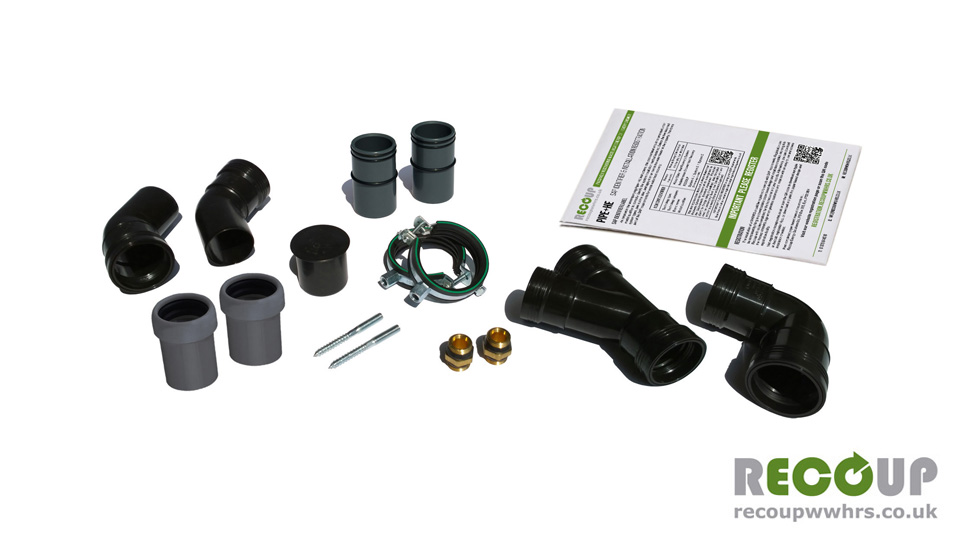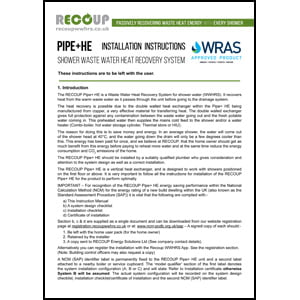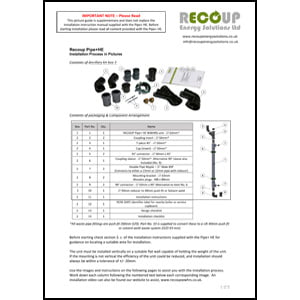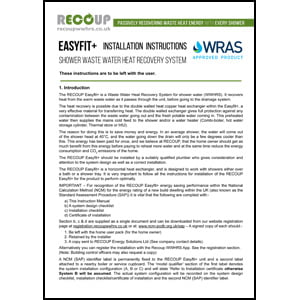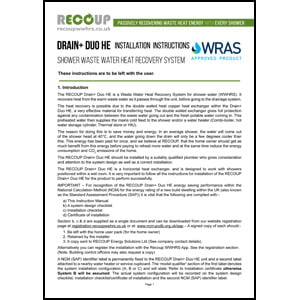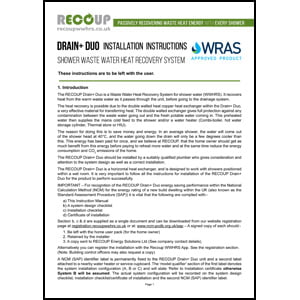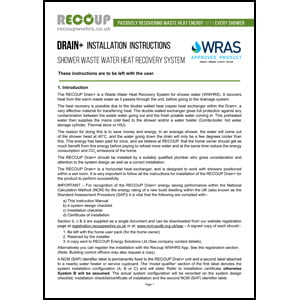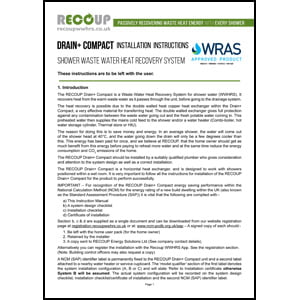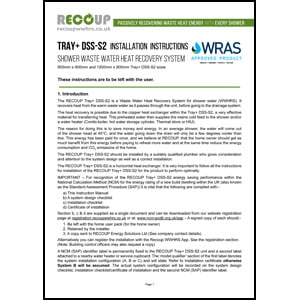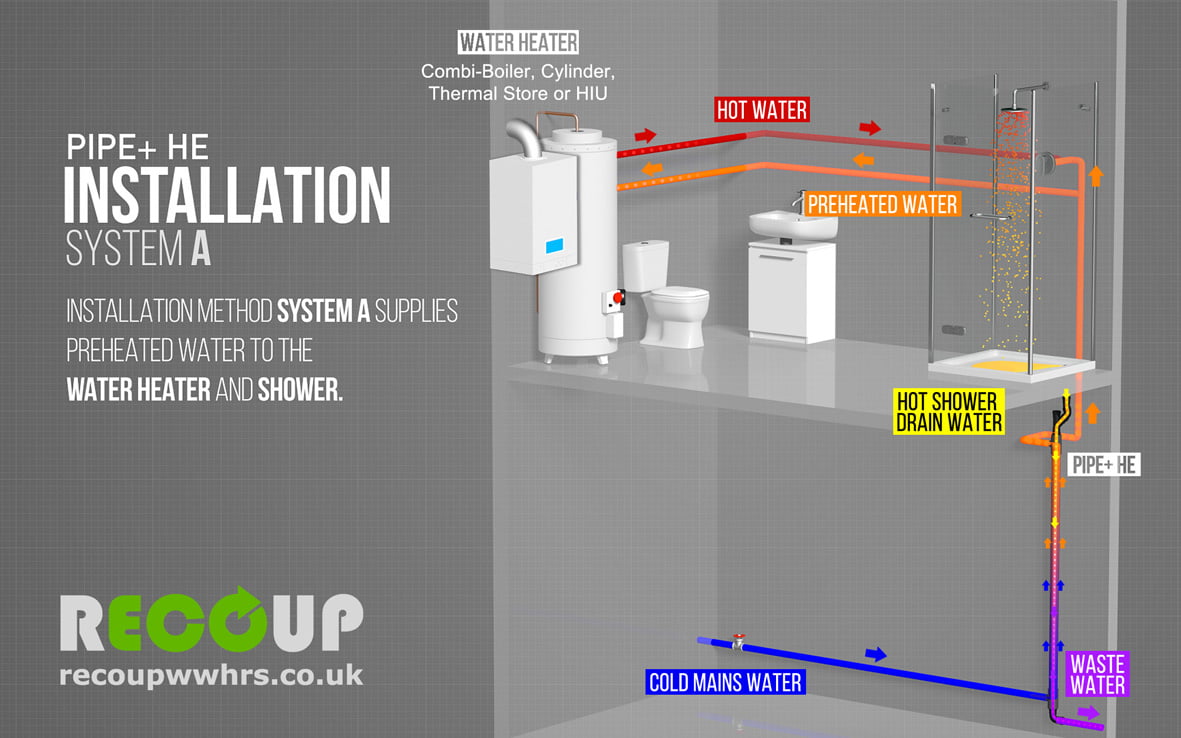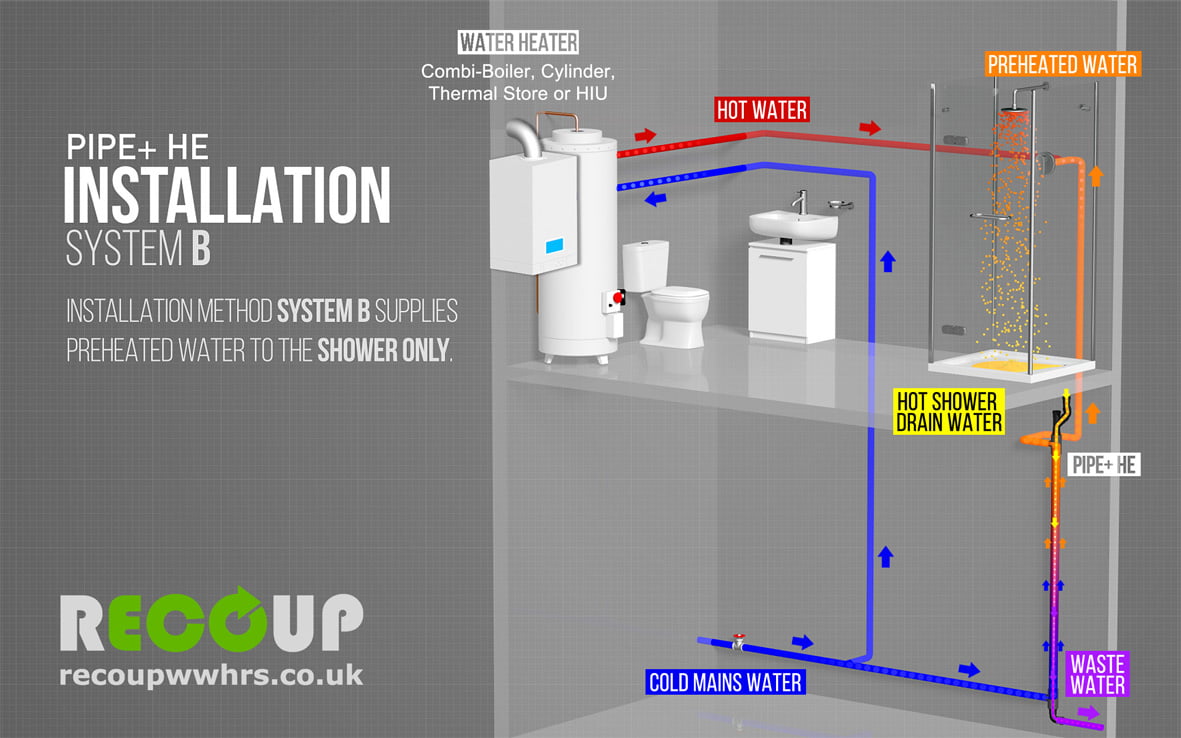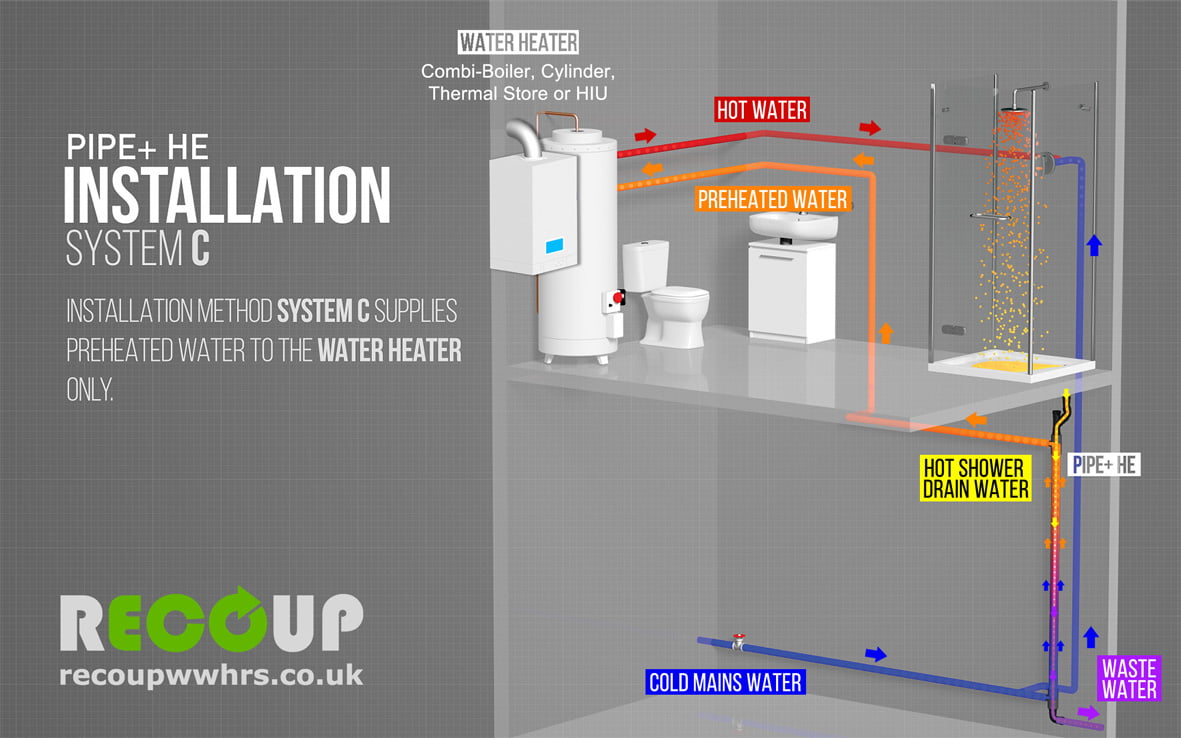Q: What about legionella?
Recoup have been Legionella Control Risk Assessed for ALL products via ALL SAP recognised installation methods (System A, B & C) and each separate product and installation method has been deemed LOW RISK.
When installed as per our manufacturer instructions and the legionella risk assessment guidance (both of which are included with each product sold), the Legionella risk is deemed ‘LOW risk’ for all products in our portfolio AND all SAP recognised installation methods.
Realistically for any DHW product, there is no such thing as ‘NO risk’ once a legionella test has been carried out. The best achievable rating is ‘LOW risk’. Therefore it can be assumed that a correctly installed shower with WWHRS system offers no greater risk than correctly installed shower without WWHRS.
Any commercial shower system would be subject to L8 guidelines, and these would NOT be affected by the inclusion of WWHRS. For domestic systems there is not a requirement for L8 on showers (or any other legionella risk assessment as standard). Therefore based on our work with Legionella Control, the guidance (for both commercial and residential) you are seeing is primarily the guidance that would be issued for a shower with or without WWHRS, as the water contained within the shower hose (or pipework after the TMV) is held in a much higher risk temperature environment (c.40°C), than pre-heated water from the WWHRS (c.25-28°C).
WWHRS is unique as a hot water system component, in that it is one of the only solutions within the Domestic Hot Water industry that voluntarily opted to run legionella testing on its’ products (that includes ourselves and our UK competitors). That said, Recoup is the only company to have ‘LOW risk’ on ALL products and ALL Installation methods. This includes System B which is the most common method of installation in commercial systems with multiple shower outlets.
Also, it is worth noting that although WWHRS is a relatively new technology in the UK market (5-7 years), it has been installed and used without notable issue in territories like Canada and Europe for 15-20 years with no reported problems to date.
Installation notes:
a) Recoup are the only WWHRS products that have Legionella Control Risk Assessment in place for ALL systems and ALL installation methods. However, to maintain the lowest risk the following should be observed: the maximum pipe length from the pre-heat out (top of WWHRS unit) to thermostatic shower mixer(s) is 4.75m – this applies to installation via Systems A & B only).
b) SAP recommend that: the maximum length of pipe run from the shower waste water out, to the unit (WWHRS curved sleeve insert) should be < 3.0m. However, this is only guidance from SAP to ensure heat loss is minimised. If installation request a longer run that this, the installation would not necessarily fail SAP.


